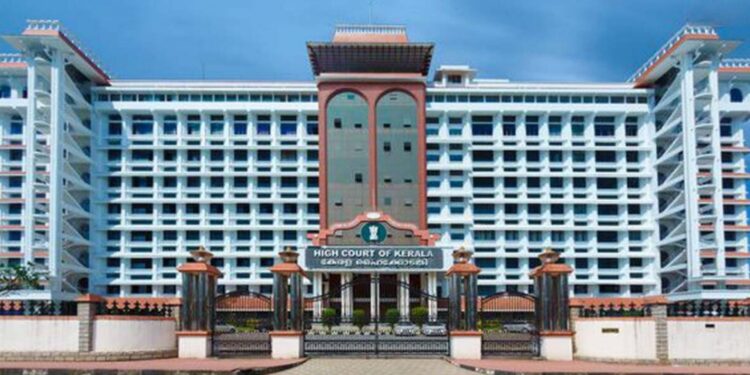The Kerala High Court has issued a significant ruling affirming the authority of civil courts to execute decrees in waqf disputes, even when a Waqf Tribunal has been subsequently constituted. This decision clarifies the jurisdictional boundaries between civil courts and Waqf Tribunals, particularly concerning waqf cases initiated before the tribunal’s establishment. The ruling came in the case TK Makkar & ord v Meerav Haji & ors, where the petitioners sought to enforce a longstanding decree involving administrative control over a mosque registered with the Kerala State Waqf Board.
Justice Kauser Edappagath emphasized that the creation of the Waqf Tribunal does not retroactively eliminate the civil court’s authority to execute decrees for cases filed before the tribunal was set up. This ruling draws attention to an often-overlooked provision under Section 7(5) of the Waqf Act, which ensures that pre-existing cases remain under civil court jurisdiction, preventing jurisdictional transfer solely due to the tribunal’s formation.
Case Background and Context
The dispute began in 1996 when the petitioners filed a civil suit to gain legal control over the Kuttilanji Muslim Mosque. They alleged the respondents had formed an unauthorized committee to administer the mosque. Seeking formal recognition, the petitioners sought a declaration, a permanent injunction, and recovery of possession. The case began well before the Waqf Tribunal was constituted in Kerala.
In the years following the suit’s filing, the Waqf Tribunal was established, and the respondents argued that under Section 85 of the Waqf Act, 1995, the civil court lost its jurisdiction over waqf-related matters. Section 85 bars civil, revenue, and other courts from adjudicating waqf property disputes once a Waqf Tribunal is in place. Nevertheless, the civil court ruled in favor of the petitioners, granting them control of the mosque and barring the respondents from managing it.
The decree, finalized in 2016, became a legal victory for the petitioners. However, when they moved to execute the decree in civil court, the executing court deferred, citing Section 37(b) of the Code of Civil Procedure (CPC) and instructing the petitioners to approach the Waqf Tribunal for execution.
High Court’s Detailed Legal Analysis
Challenging the executing court’s order, the petitioners approached the Kerala High Court, contending that the civil court’s jurisdiction remained intact. Justice Edappagath pointed out that the executing court’s reliance on Section 37(b) of the CPC needed to be revised, overlooking both Section 38 and Order XXI Rule 10 of the CPC. These provisions affirm that decrees may be executed by the court that issued them or by any court to which they have been transferred, reinforcing the executing court’s jurisdiction.
The High Court emphasized that Section 7(5) of the Waqf Act preserves civil court jurisdiction over cases initiated before the tribunal’s formation. This provision ensures that these cases continue in civil courts, preventing retrospective jurisdictional shifts that could complicate and delay proceedings.
Historical Perspective and Observations
Referencing a historic 1872 observation by the Privy Council, Justice Edappagath remarked, “The difficulties of a litigant in India begin when he has obtained a decree,” underscoring the often prolonged journey toward enforcement. This case exemplifies the sentiment, as the decree—issued in 2000 for a suit filed in 1996—remains unenforced due to procedural hurdles and jurisdictional ambiguities.
Despite the Waqf Tribunal’s establishment, the High Court underscored that civil courts retain the power to execute decrees related to waqf disputes filed beforehand. By upholding the civil court’s jurisdiction, the ruling reaffirms that litigants should not face additional barriers in enforcing decrees simply because a tribunal was subsequently constituted.
“For these reasons, I hold that there is no bar for the civil court to execute a decree passed by it relating to a waqf dispute even after the constitution of the Waqf Tribunal. The finding of the executing court in Ext.P7 to the contrary—that by establishing the Waqf Tribunal, it lacks jurisdiction to execute the decree—cannot be sustained,” the High Court concluded.
Final Order and Impact
In its closing order, the High Court directed the executing court to enforce the decree within three months, providing long-awaited clarity and relief to the petitioners.
This ruling has broader implications for waqf-related litigation in India, affirming the civil court’s continued role in cases initiated before the establishment of Waqf Tribunals. It also signals to other courts and litigants that creating specialized tribunals does not automatically nullify pre-existing civil court decrees or jurisdiction.
Representation in Court
The petitioners were represented by a team of advocates including Vaisakhi V, Babu Karukapadath, MA Vaheeda Babu, PU Vinod Kumar, Arya Raghunath, TM Muhammed Mushtaq, Ajwin P Lalson, Karukapadath Wazim Babu, P Lakshmi, Aysha EM, Dennis Biju, Abuasil AK, Shawn Johnson, Manu Krishna SK, and PK Abdul Rahman. Conversely, advocates MA Ahammed Saheer, TM Abdul Latheef, MM Aliyar, EA Haris, Muhammed Yasil, Nithin AR, and Jamsheed Hafiz represented the respondents.
This decision by the Kerala High Court has thus provided essential clarification on the interplay between civil courts and Waqf Tribunals, ensuring that decree-holders retain their rights to enforce judgments in cases that predate tribunal formations.

















